
Being outside is good for us. Whether it’s a gentle stroll through the park, enjoying nature from a bench or taking on an activity such as wild swimming or hiking, we should be looking for ways to enjoy time in the great outdoors more often. Our minds and bodies would thank us for it.
In this guide, we’ve put together the latest facts, figures and statistics which reveal exactly why being in fresh air enjoying nature is good for us, as well as exploring things like how much time people currently spend outdoors and how you can embrace nature more in your daily life.

How much time do we spend outdoors?
For most people, the majority of their time is spent indoors. Although research varies, it’s believed that 90% of the day or even higher (92%, in some studies ) is spent inside. On average, that means we’re spending around 22 hours indoors every day and just two hours (or less) outside. In fact, some people are spending as little as 15 minutes outdoors every day if you exclude their commute, according to reports.
The amount of time we spend indoors has been on the rise too. Between 2017 and 2022, people in the UK admitted to spending nearly 11 hours more inside each week. This could include time in an office, at the shops, at home, or in the car or public transport. Trying to save money, shopping online, and the rise in working from home were among the most common reasons people had for spending more time inside.
The lack of outdoor time has led to many calling Britain an “indoor nation,” experiencing a strong disconnection from nature. But what does this really mean? Well, surveys have found:
37%
of British adults say they have no connection to wildlife in their everyday life
10%
of adults said they could only manage to identify one type of tree by sight
47%
couldn’t remember the last time they set foot on a farm
8%
said they can’t remember the last time they went for a walk and saw wildlife or greenery
33%
said they never get the chance to swim in the sea
Encouragingly, 85% of those polled said they would love to spend more time in the open air. And this is something we did see happen when restrictions were eased during coronavirus pandemic lockdowns. Being required to stay indoors for such a long time really seemed to inspire people to reconnect with nature and spend more time outdoors. According to government data:
45%
Nearly half of adults in England report spending more time outdoors than before the pandemic (March 2022)
39%
Close to four in ten say that nature and wildlife are more important than ever to their wellbeing (March 2022)
The increase in both time spent outside, and an appreciation of how important it is, was certainly an unexpected benefit of the lockdowns, but have we kept up the momentum? After all, connecting with nature is restorative to our health and wellbeing. Whether you’re happy with the amount of time you spend outside or you’d like to be inspired to head out into nature more, we look at all the numerous benefits of getting some fresh air.

The benefits of getting outside more
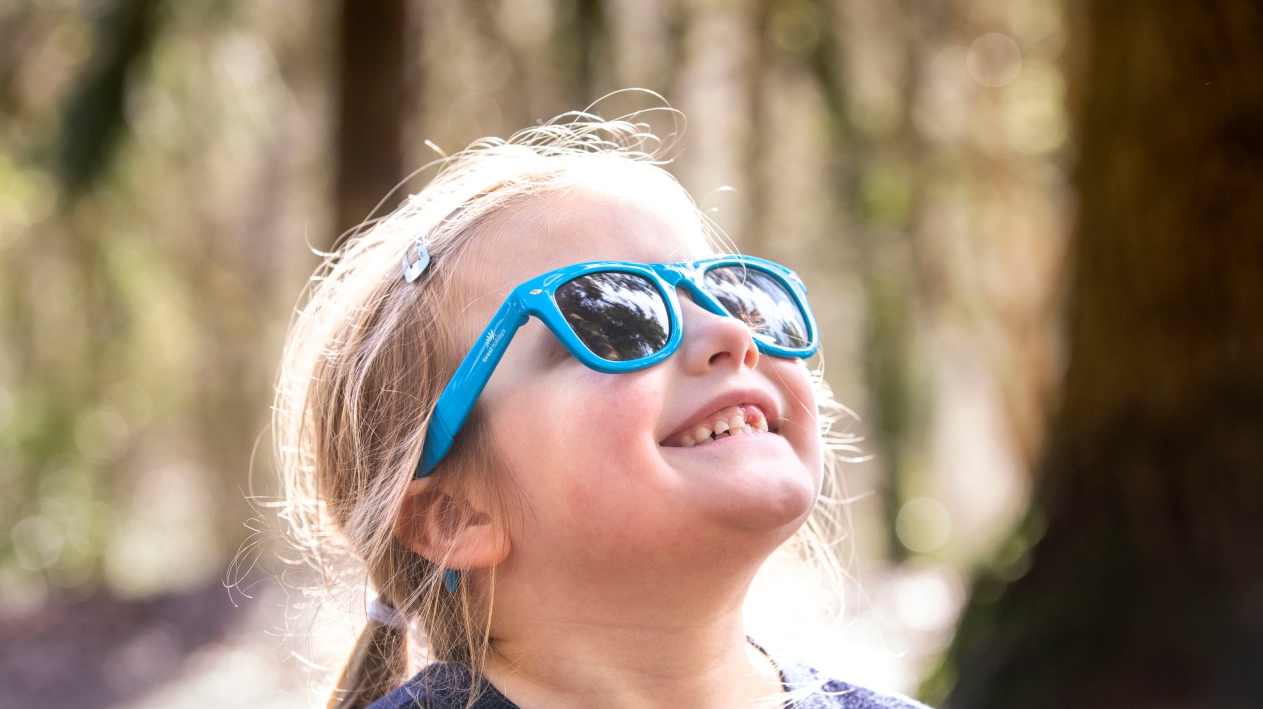
2.1 The benefits for all of us Being outside genuinely makes us happy
Further government data confirms what most of us already know – being in nature makes us happy (85% of adults agreed). Exposure to natural light and fresh air has a powerful effect on our moods. Natural sunlight in particular boosts serotonin production in the brain, which helps us to regulate our moods and feel uplifted. Getting outdoors and taking in just a small amount of light can be enough to elevate our mood and re-energise us.
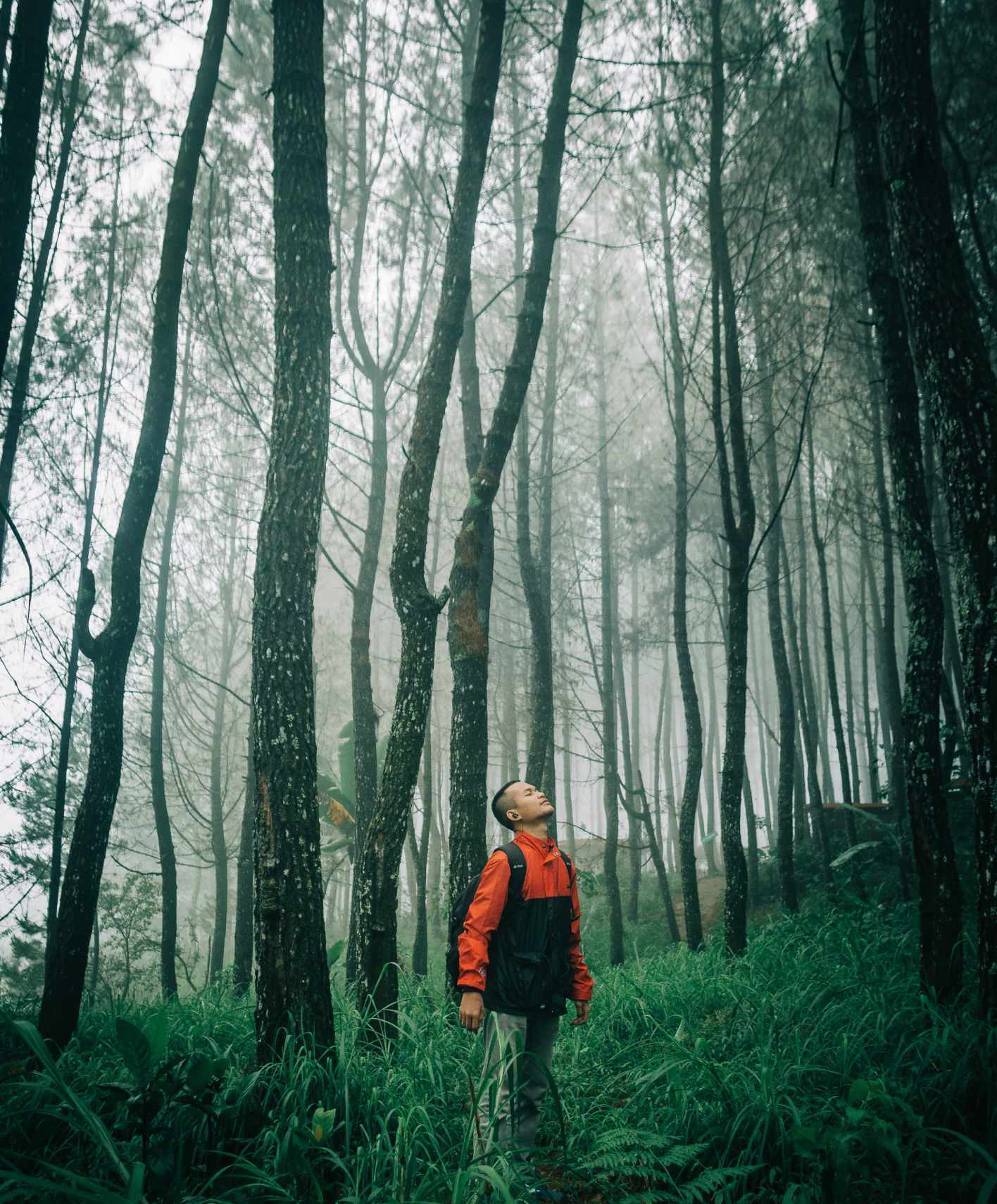

2.2 The benefits for all of us It can promote an overall feeling of wellbeing
As a result, it’s hardly surprising the majority of adults (91%) also agreed green and natural spaces are good places for mental health and wellbeing. The smells, sounds and sights of the outdoors can be incredibly relaxing for the mind and has been linked to better mental health. Being outside allows us to get in touch with nature and the environment around us, which can provide a welcome distraction from day-to-day worries.
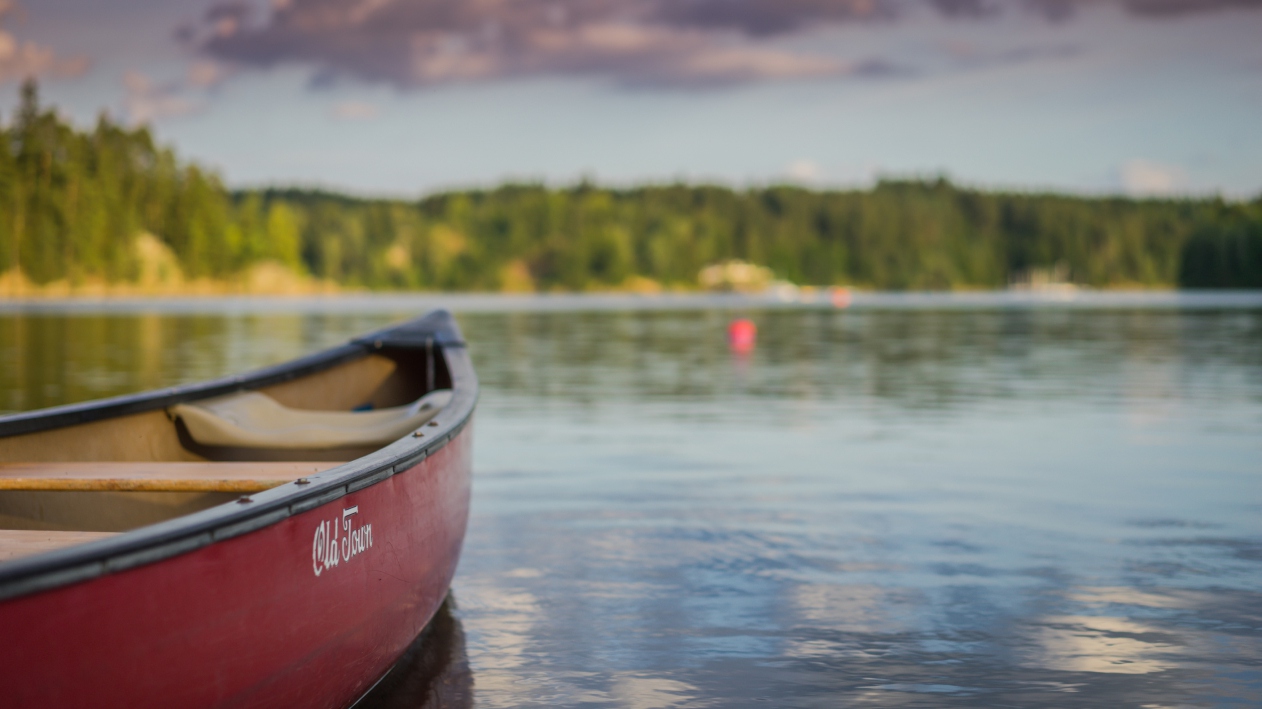
2.3 The benefits for all of us A reduction in stress
One of the reasons it makes us feel happier is because spending more time outdoors can reduce stress. Simply being in nature and sunlight can help to reduce cortisol levels – the hormone which is released when we experience stress. Natural settings create a sense of calm, but also encourage physical activity, which further promotes wellbeing by releasing endorphins that help regulate mood and energy levels.
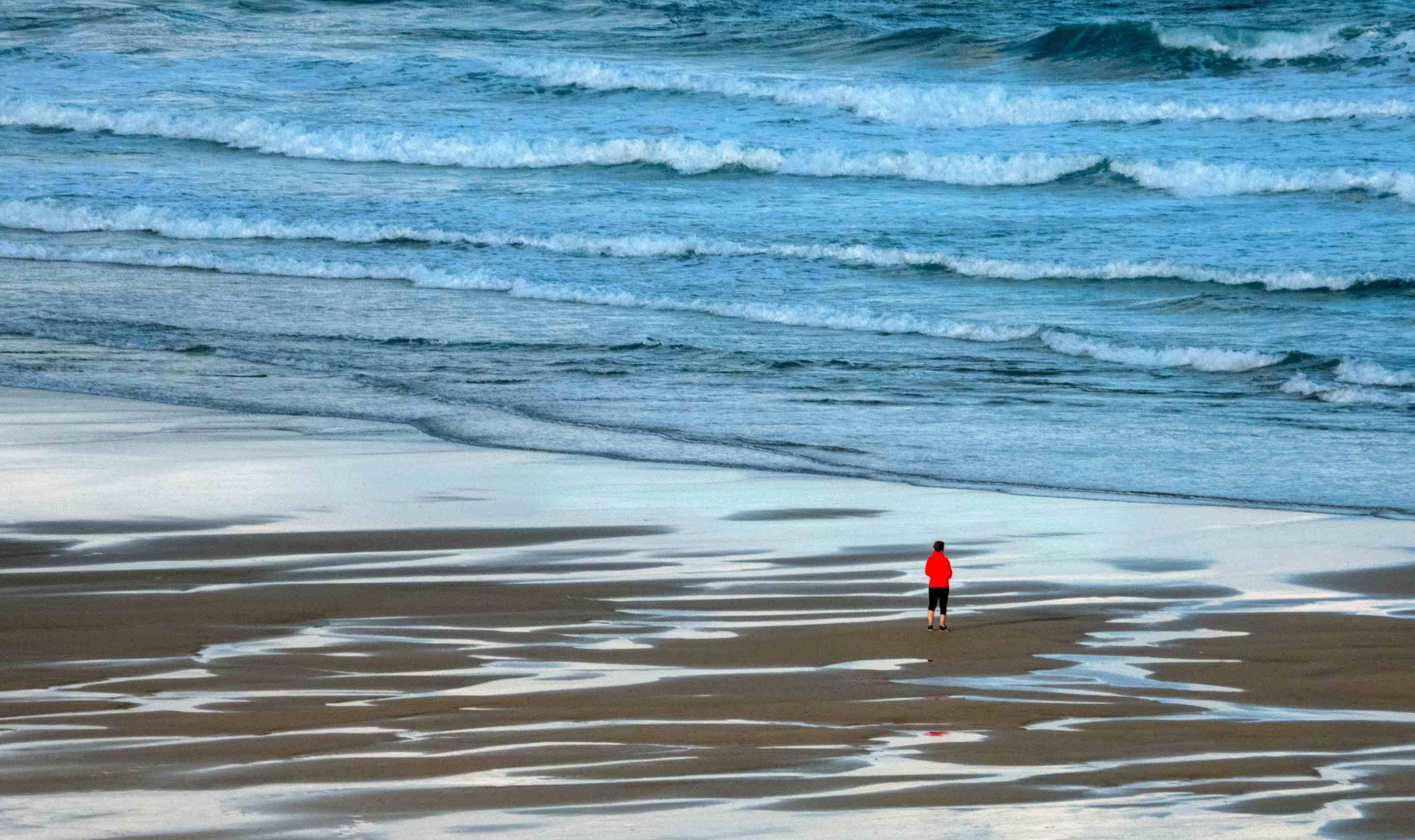
2.4 The benefits for all of us Nature is soothing
There are further reasons why many people retreat to natural settings when they feel stressed. These environments soothe us. In fact, what you see, hear and experience at any time can impact not only your mood but how your internal systems are working.
Being in and around nature tends to help us feel better emotionally – as well as reducing cortisol levels, you should experience less muscle tension, and have a lower heart rate and blood pressure. According to reports, research done in hospitals, offices, and schools found that even a plant in a room can have a significant impact on stress and anxiety. One study even suggests having a view of trees (as opposed to a brick wall) can help patients recover from surgery quicker.
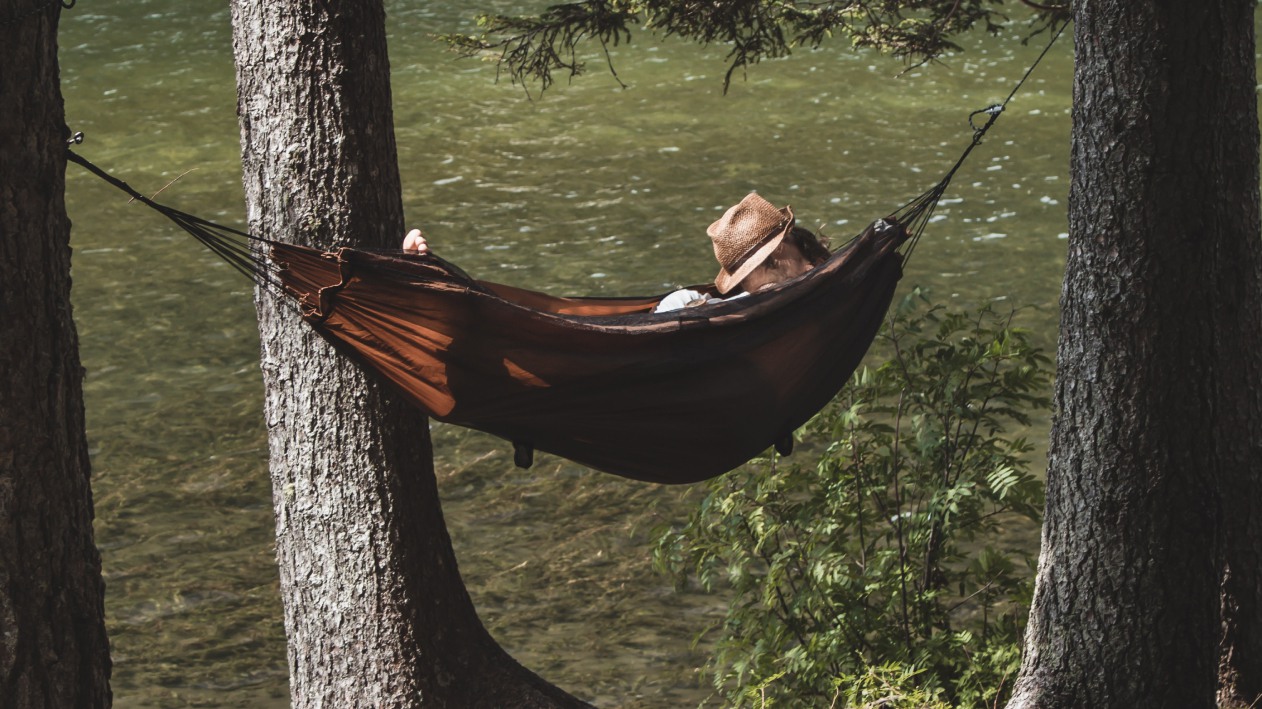
2.6 The benefits for all of us Spending time outside can lead to better sleep
If you feel like you have a better night’s sleep after a long day outside, you’re not alone. By spending more time outside, especially during the day when it’s light, we take in more sunlight which helps to set and maintain a regular circadian rhythm. This takes pressure off of our bodies to produce melatonin on its own, helping us to feel more alert during the day and relaxed when it's time for bed.
Being active outdoors also helps to tire us out more quickly when it's time for bed, often leading to deeper, longer sleep.


2.7 The benefits for all of us Improved creativity and productivity
An added benefit of the positive feelings and improved moods associated with time outside is that it allows for a sense of clarity and perspective too. Older research established something called the Attention Restoration Theory – which suggests that exposure to nature and outdoor environments helps us develop the ability to concentrate better.
It’s easy to see how going outside – away from screens and other distractions – helps give the brain a chance to recharge and reset, so that the creative juices can flow. By immersing ourselves in nature, an expanded level of mental clarity and a heightened sense of inspiration can occur. We feel refreshed.
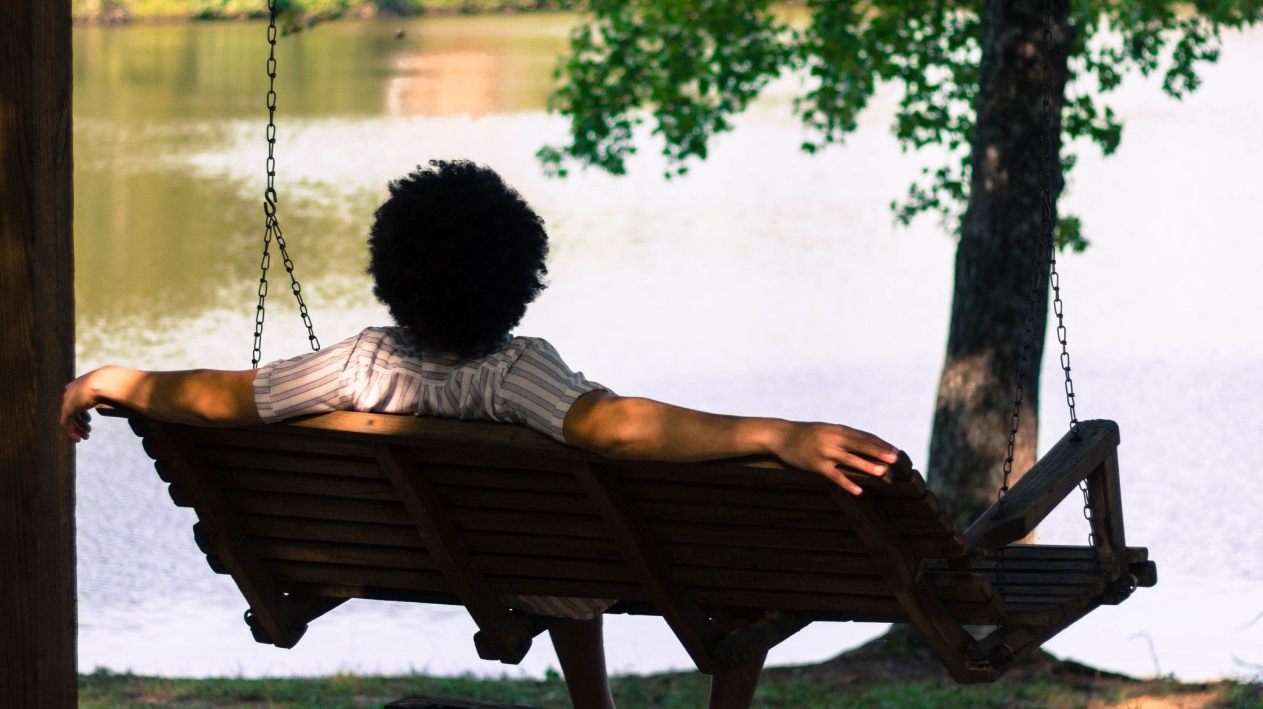
2.8 The benefits for all of us Fresh air is good for us
When we talk about air pollution, most people think of busy cities or roadside fumes. But our homes contain air pollutants too (sometimes even more than outside), including CO2, particulate matter, and volatile organic compounds (VOCs), such as perfume, paint fumes and cleaning products. Regularly ventilating your home is important, so throw open your windows and doors and step outside because spending more time in fresh green spaces can lower your risk of respiratory concerns.
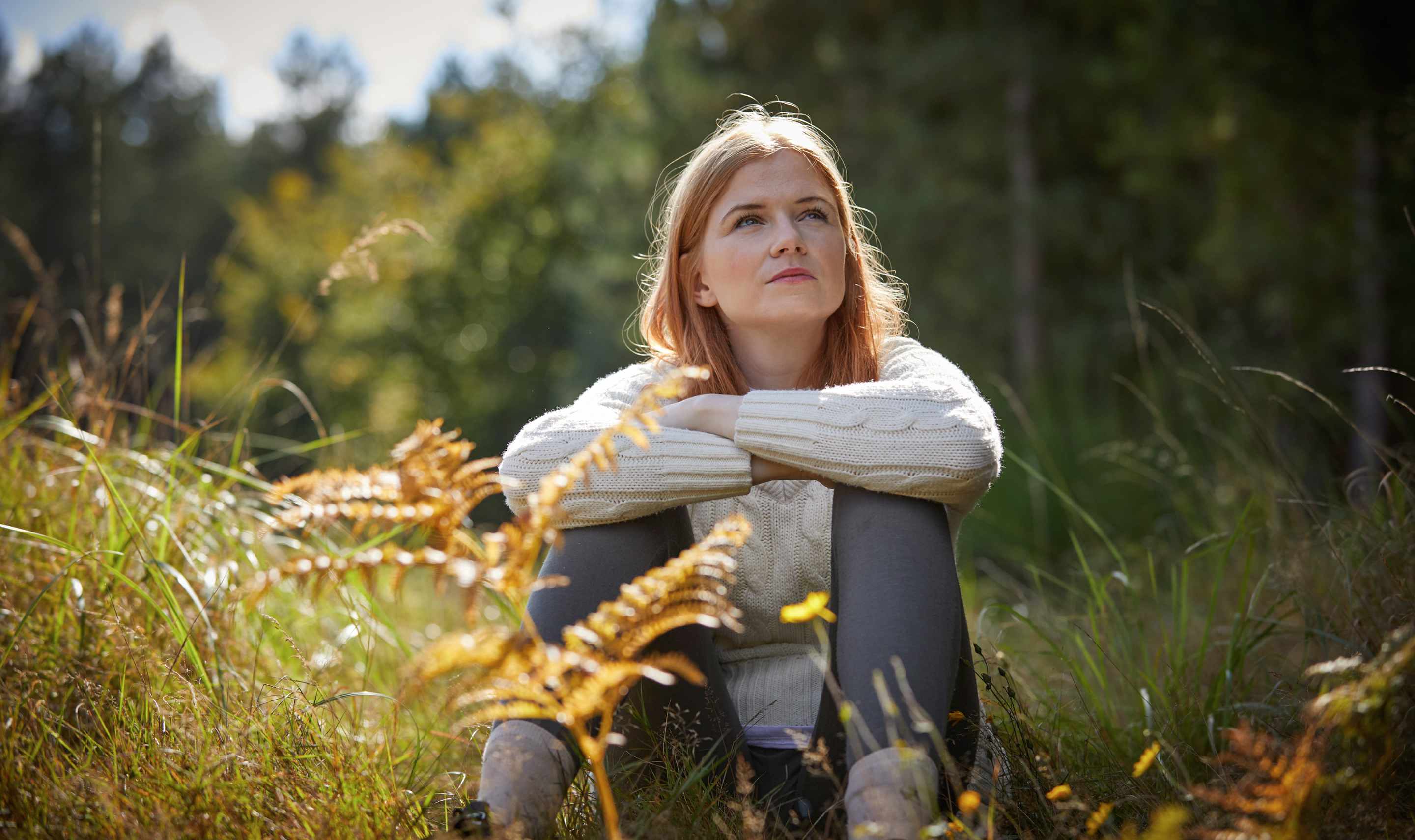
2.9 The benefits for all of us Boosted immune systems
If you’re fed up with catching colds and feeling under the weather, it’s yet another reason to get outside. Being outdoors can help your immune system function optimally. That’s because living in completely sterile environments isn’t actually good for us – we need to come across ‘safe’ amounts of microorganisms so our immune systems can practise and prepare for more dangerous infections. This helps your body to recognise what is and isn’t dangerous, and respond accordingly.
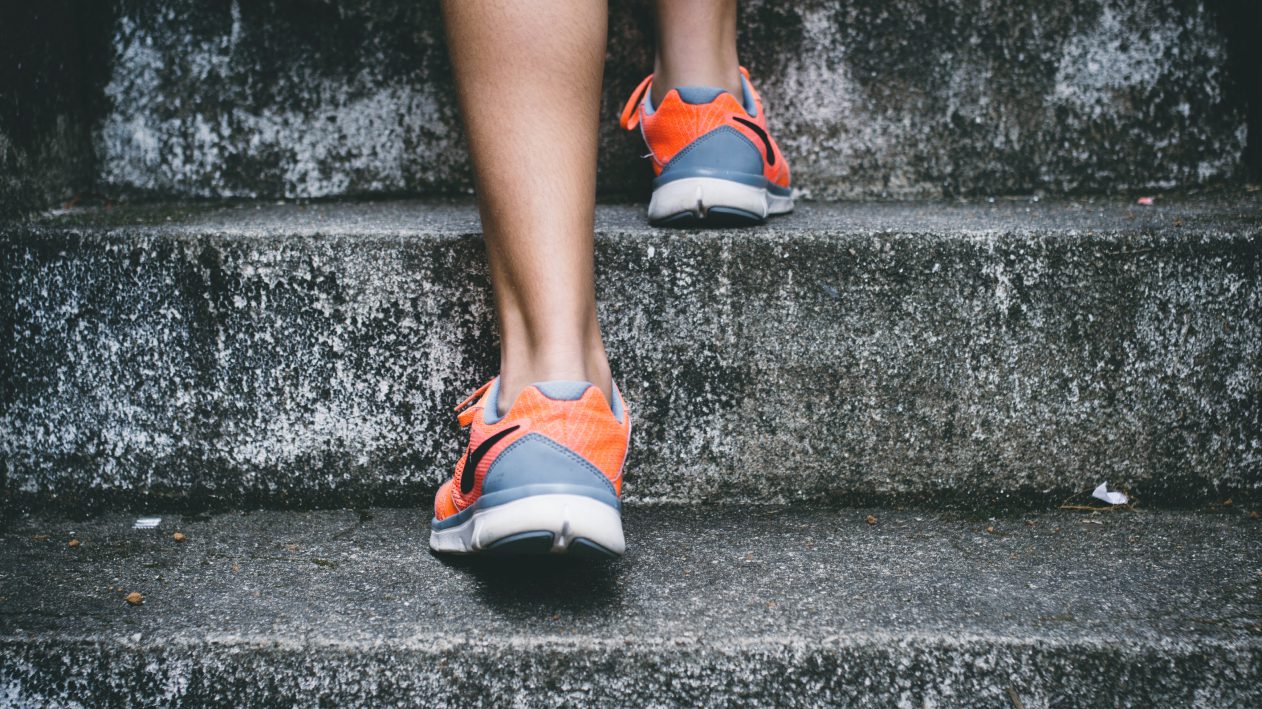
2.11 The benefits for all of us Being in nature is great for our overall health
It’s not just about boosting your immune system, though. There’s a substantial amount of research which links time outside or exposure to nature to a range of wonderful health benefits, including lower risks of:
Some studies even suggest that living in areas with higher amounts of green space can even reduce mortality rates, particularly from cardiovascular disease.
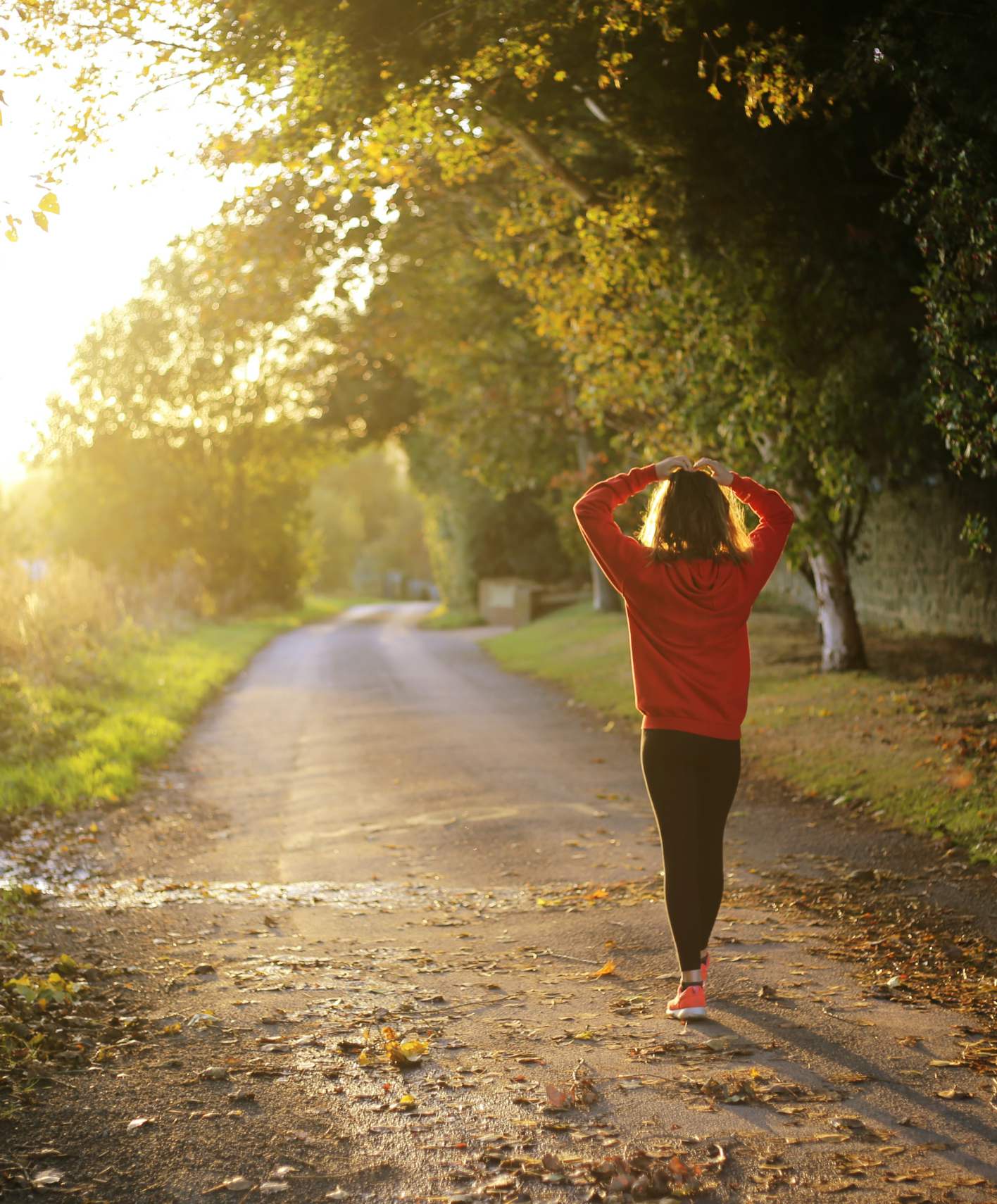

2.12 The benefits for all of us Motivation to exercise
While exercise isn’t a requirement for reaping the benefits of getting outside more, how we feel outdoors can certainly contribute to motivation levels. Without having to worry about gym memberships or crowded workout classes, exercising outside can get your heart rate up and help keep you in shape without it feeling like a chore.
The scenery we're blessed with can inspire us to try new things too, whether that’s exploring new running trails, trying a new hobby, such as paddle boarding, or discovering scenic bike paths. For many, it’s more motivational than any indoor location.
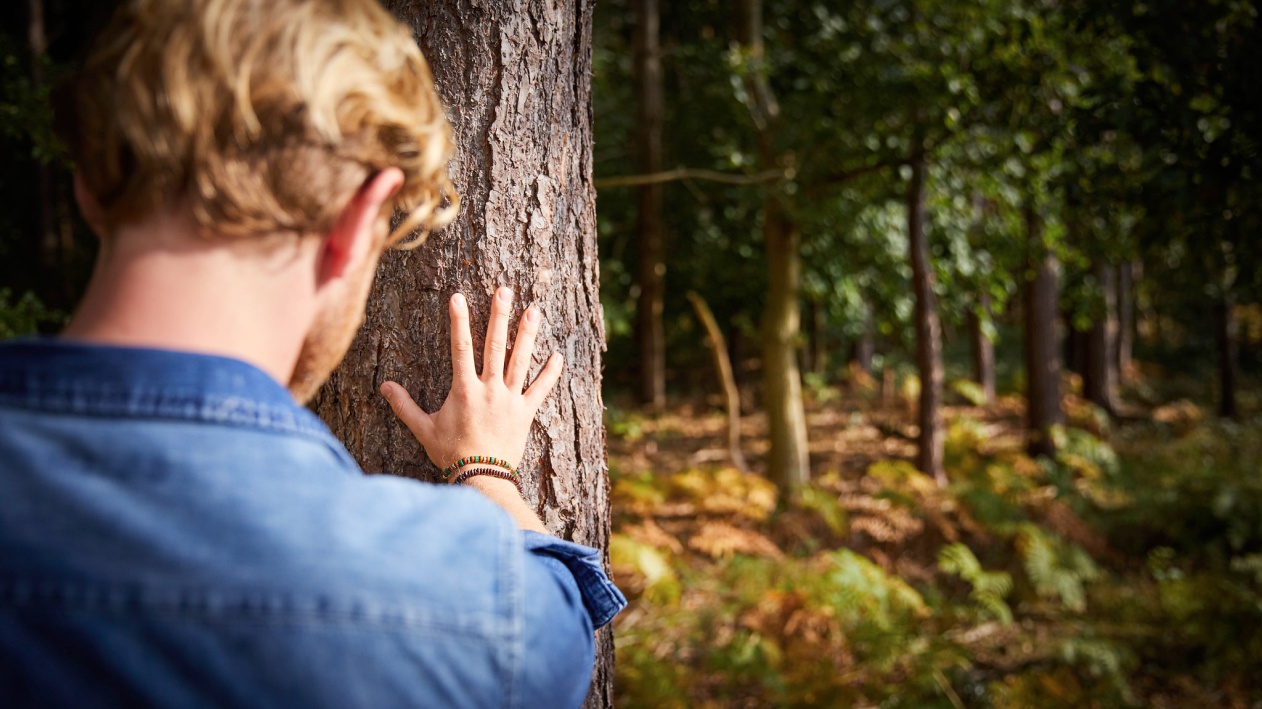
2.13 The benefits for all of us The chance to engage in wellbeing activities
Certain outdoor activities – such as grounding, forest bathing or simply practising mindfulness – can help us gain even more from our time outside. They enhance the benefits outlined above by really focusing on and practising certain behaviours which connect us deeper with the world around us.
Grounding, for example, is all about creating a connection with earth energy, allowing the person to remain present and rooted in the moment. This can be done through physical contact with the ground, whether that’s the grass in your garden or sand between your toes at the beach. Grounding is said to bring about feelings of peace, ease, and restored balance.
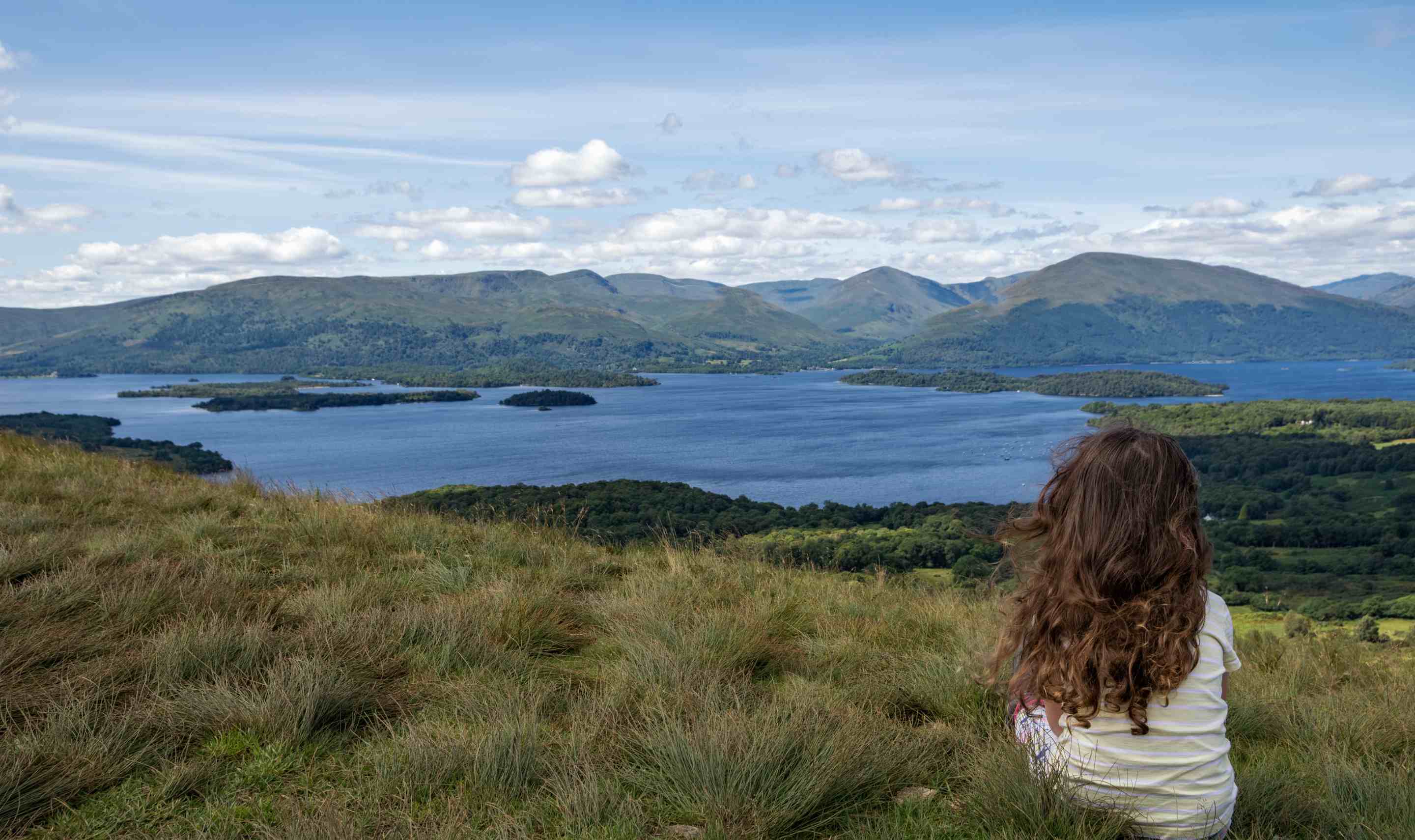
2.14 The benefits for all of us An appreciation of – and connection to – nature
Have you ever felt in awe of nature? When we take the time to appreciate the environment around us, it really is amazing. In fact, there’s a reason we are so drawn to connect with nature. It’s actually an innate human instinct, referred to as Biophilia, which suggests humans are genetically determined to have an affinity with the natural world. Spending more time outside really allows us to embrace that connection and be a part of something bigger than us.
What’s more, as our appreciation of the world around us grows, we’re more likely to start engaging in efforts to look after nature too. Not only can you thrive outdoors, your presence can be involved in helping nature to thrive too. For example, by supporting sustainability or conservation efforts.
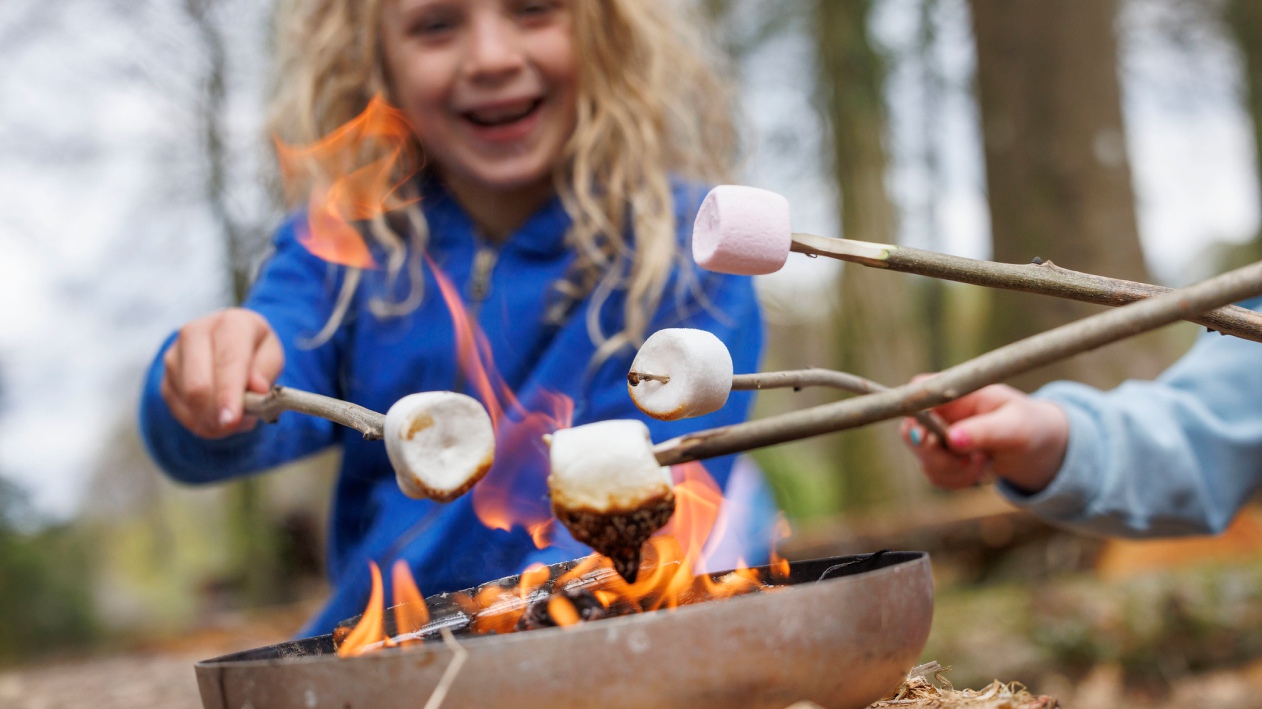
2.16 For young kids It’s also full of learning opportunities
In more worrying statistics, it seems many children haven’t experienced much of the great outdoors. Research from a few years ago discovered two in five of Britain's youngest generation have never gone camping, while almost half have never built a den or fort, or climbed a tree. For many parents, doing outdoor activities like these forms a big part of their childhood memories.
It’s not just about the fun children have doing things like this, but they actually learn too. Lucy Hellier, WWT learning project manager told the Guardian: “Young kids that learn and play outside get direct experience of weather and the seasons and wildlife – things that are only possible outdoors – and they get to assess risks, solve problems and develop creativity.” Digging in the dirt, building dens and forts in the woods, or climbing a tree. Activities like this actually help kids develop valuable life skills.
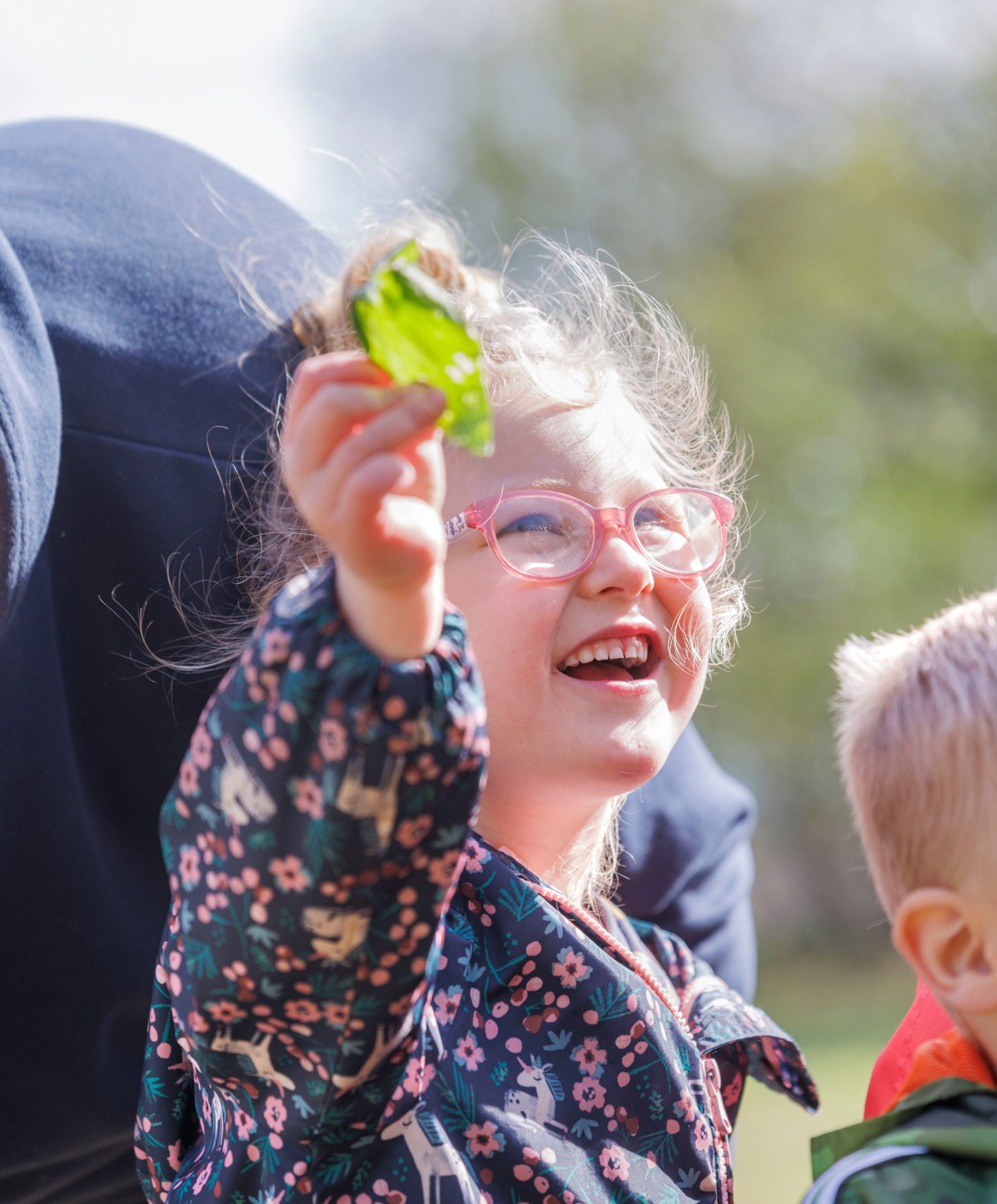

2.17 For young kids Instils healthy habits at a young age
Sedentary lifestyles are on the rise. Many of us spend our working days sat down, and a lot of unwinding is centred around sitting too. But we want to set the right example for children and show them the value of getting up and moving more. At a young age, kids still see their parents as inspiration and will often want to copy what they do. So it’s important they see you moving and embracing exercise as a healthy habit. After all, it can improve your mood, boost self-esteem and help us cope with the stresses of life.
Other healthy outdoor lifestyle choices which are great for kids to witness include growing your own produce, caring for wildlife and habitats, and being a responsible guardian of nature – clearing up your rubbish, for example.
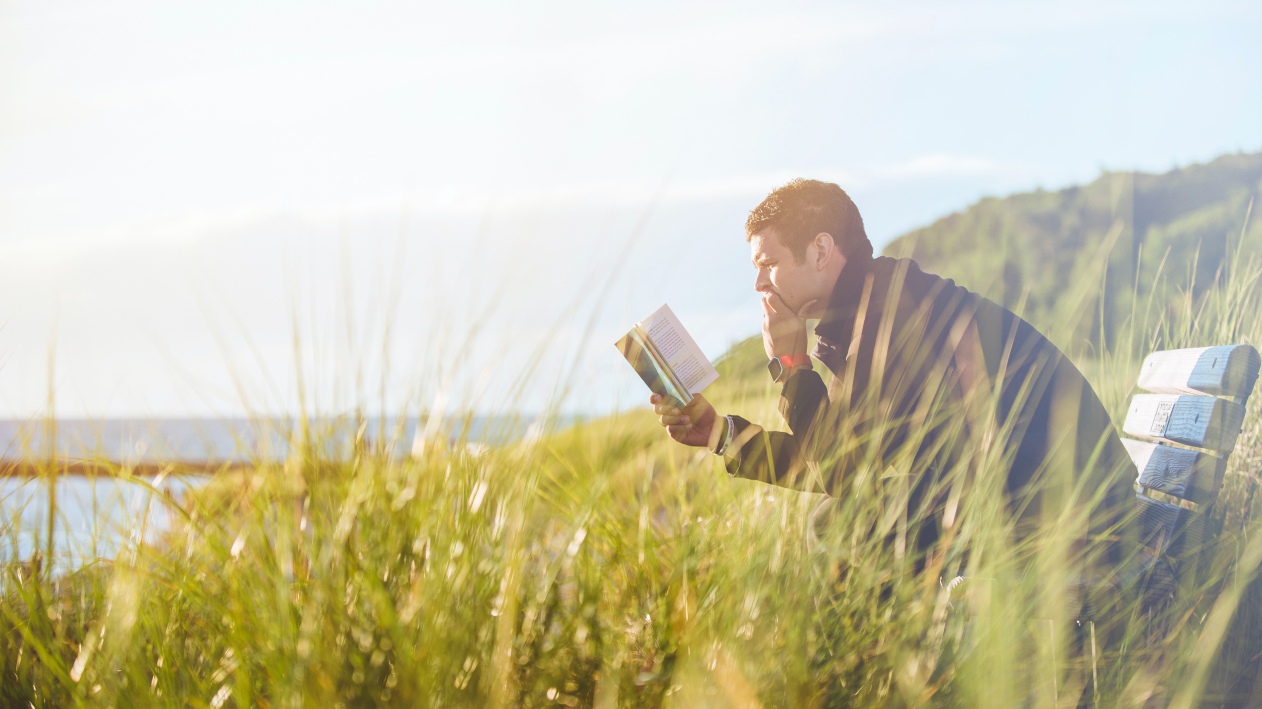
2.18 For teenagers Screen breaks and a refuge from our technology-heavy lifestyles
If you worry about the amount of time your children spend staring at a screen, you’re not alone. There are more things than ever before to encourage kids to stay inside looking at different devices, leading to a stark rise in natural deprivation – particularly among teenagers.
General guidelines suggest limiting children's exposure to screens to around two hours a day. Regularly hitting more hours of screen time can have all kinds of health consequences from irregular or troublesome sleep, to problems with obesity. It can also bring about behavioural problems, especially as parents try to get their kids away from the screens.
And a lot of it is understandable. Screens are designed to be addictive and packed full of stimuli. Whether it’s a flashing game or a vibrating notification on your phone, there’s a lot of overstimulation which can raise kids’ stress levels – perhaps without them even realising.
Fortunately, nature is the perfect anecdote to this. Time spent outside is almost a refuge for unwinding and recharging, the smoothing atmosphere perfect for kids who are learning to manage their emotions as they grow up.
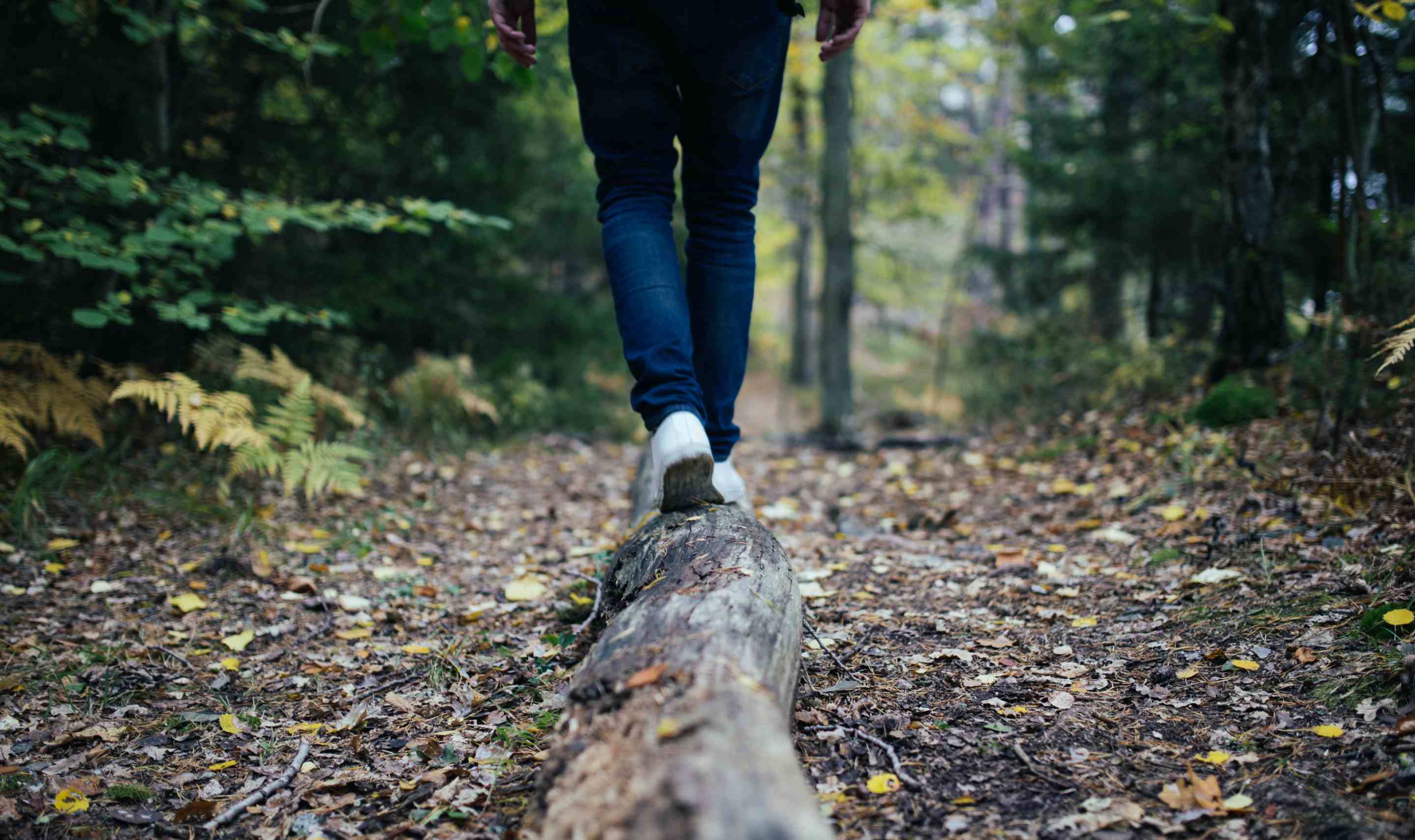
2.19 For teenagers Additional skills and hobbies
Utilising the time spent outside as a teenager to embrace new skills or hobbies can play a role in growing confidence and independence. Recreational activities (like hiking or camping) provide teenagers with the opportunity to practise valuable life skills such as navigation, problem solving, teamwork, and self-reliance. And anything active can help kids of all ages hone their balance, coordination, and motor skills.
It’s all a hands-on way of learning that tends to be enjoyable. With a lot of focus at school on academic learning (as well as the pressures this can cause), this can be a welcomed relief.
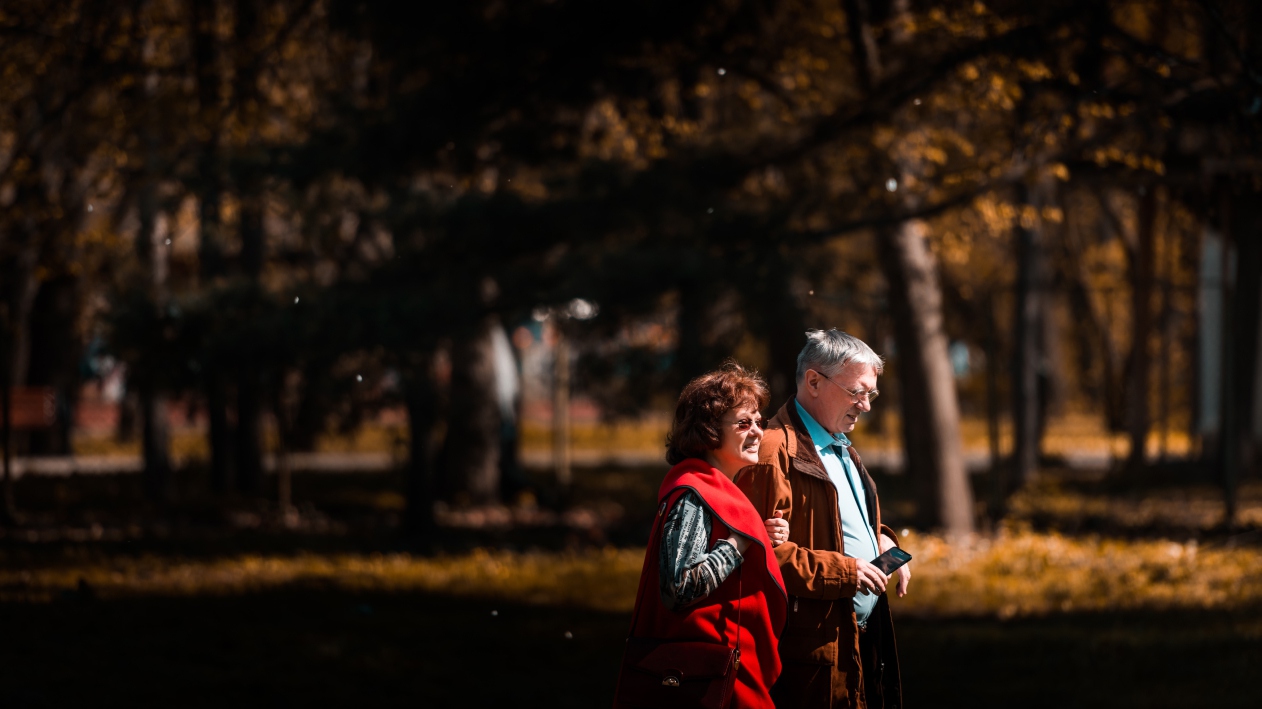
2.21 For seniors Gentle exercising (of body and brain)
Staying active is important as we age. And getting outside is a great way to look after ourselves – physically, mentally and socially. Walking to your local park is a chance to keep moving at a pace that suits you, and you’ll likely see other people and wildlife so sitting and staying a while will be enjoyable too. Which is great news because spending more time in green spaces is even associated with slower cognitive decline. Cognitive functioning is essential for quality of life at an older age, because it plays a large role in wellbeing, functioning, and the ability to stay living independently for longer.
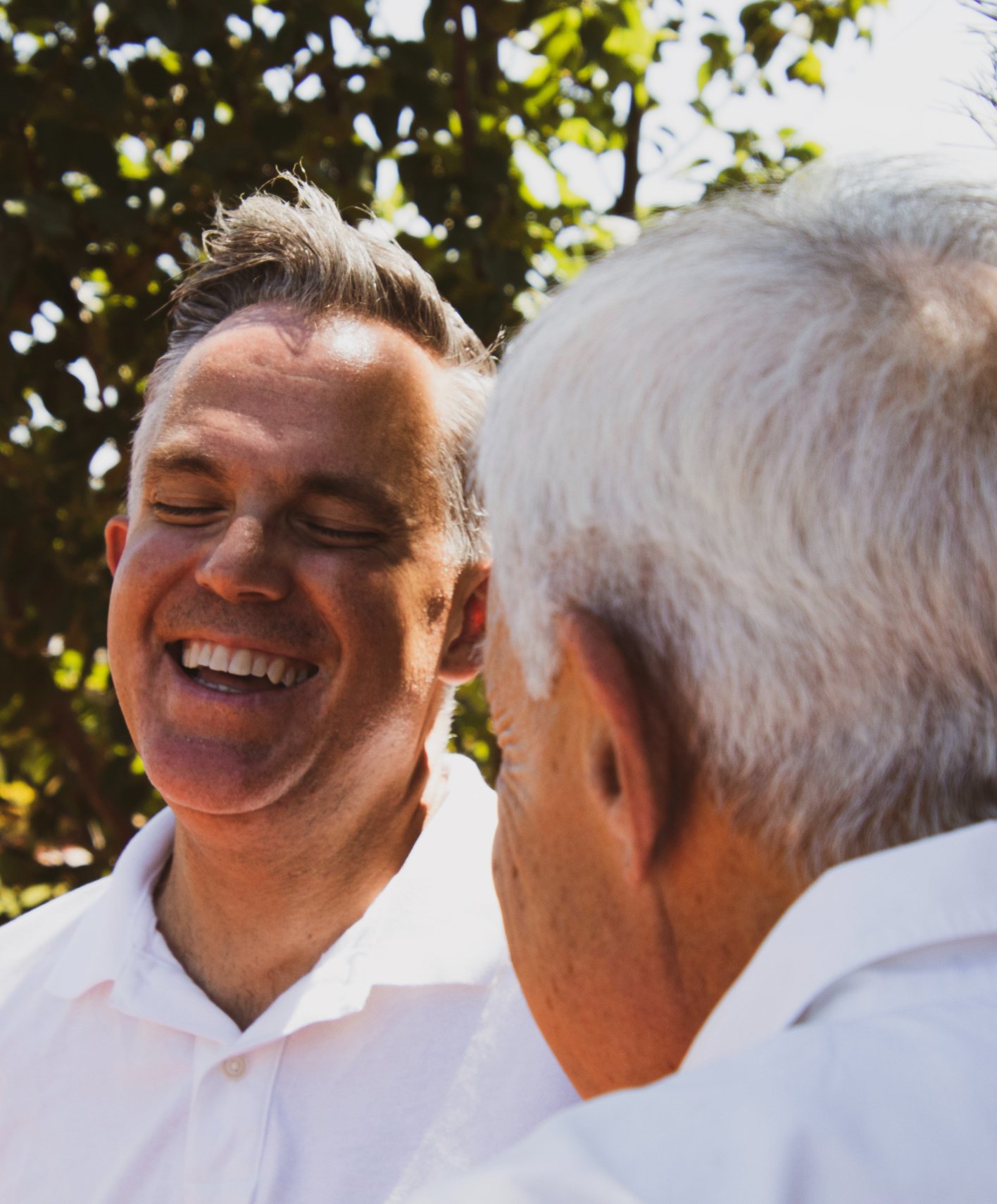

2.22 For seniors Social opportunities
Social isolation and loneliness are linked to numerous health risks, so it’s important to consider how we can use green spaces to meet and socialise with others. Outdoor spaces are often linked to social opportunities. For example, participating in outdoor activities like gardening or bird watching can encourage older adults to join local clubs or volunteer groups, get to know their neighbours, and make new friends.
What’s more, many of these recreational activities, such as walking, are best enjoyed in groups, allowing for shared experiences and a chance to catch up on conversation with family and friends.
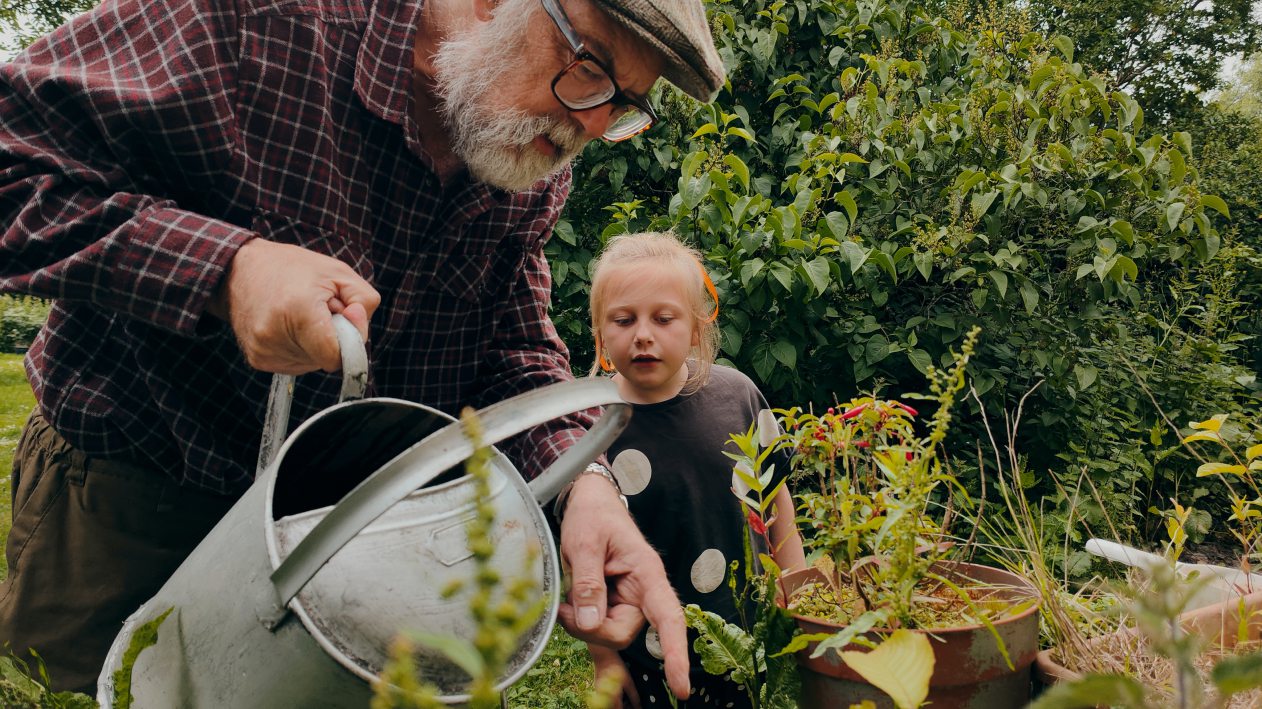
2.23 For seniors A sense of achievement
Certain outdoor activities, mainly gardening, are particularly beneficial for older people. It’s a gentle way to stay active but offers rewards far beyond just physical health. It’s genuinely rewarding to see your garden or allotment flourishing from the time you’ve spent there. Gardening provides both a sense of purpose and achievement, which can be harder to find when responsibilities from work or family life slow down as we age.

Tips and tricks for embracing nature more
Now we’ve established why being outdoors makes us feel better, we want to help encourage people of all ages to spend more time in nature. After all, it isn’t easy. Bad weather, a lack of green spaces, and other priorities – there are a lot of reasons why getting outside can slip to the bottom of your to-do list. That’s why we’ve put together some advice for making integrating it into your daily routine more achievable:
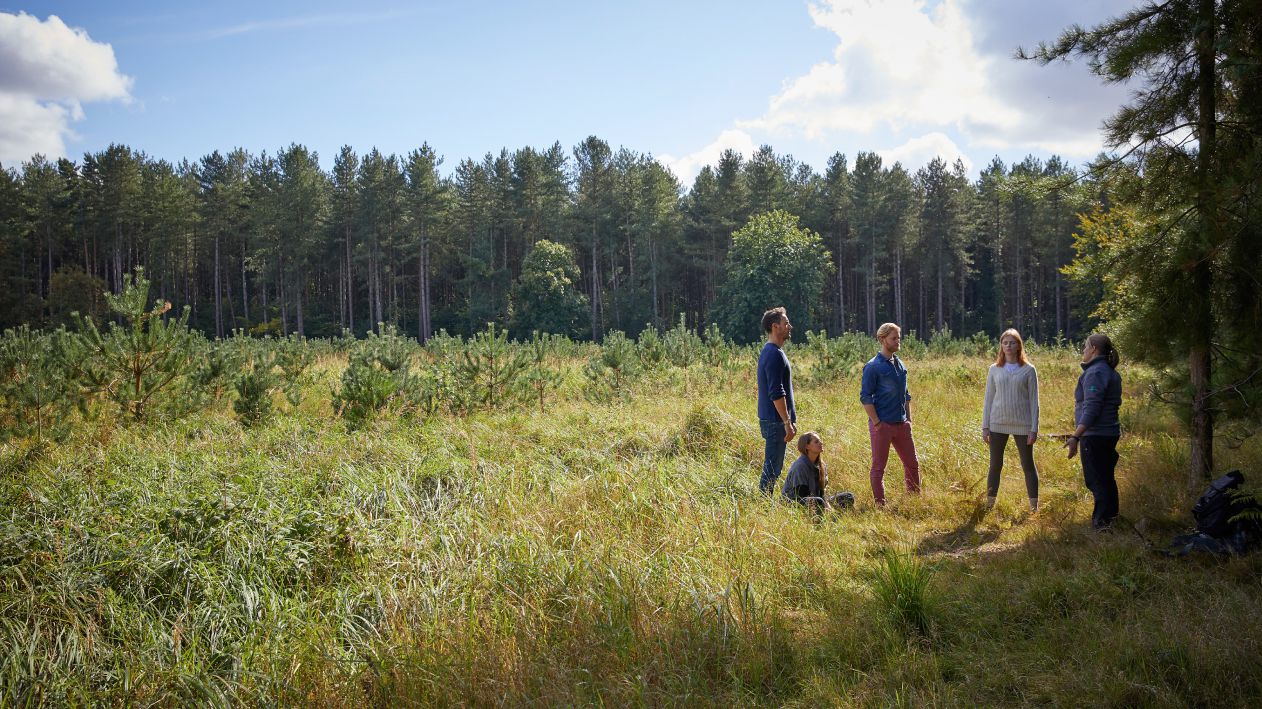
3.24 Tips and tricks Remember that being outside doesn’t mean you have to be exercising
All too often the recommendations for embracing time outside focus around moving more. But many of the benefits of spending time outside don’t require you to exercise; you can simply be in nature. Research from Japan on forest bathing confirmed that sitting passively in a natural environment can benefit your physical and mental health. So something as simply as sitting on a park bench and looking at the scenery and wildlife around you is good for your wellbeing.
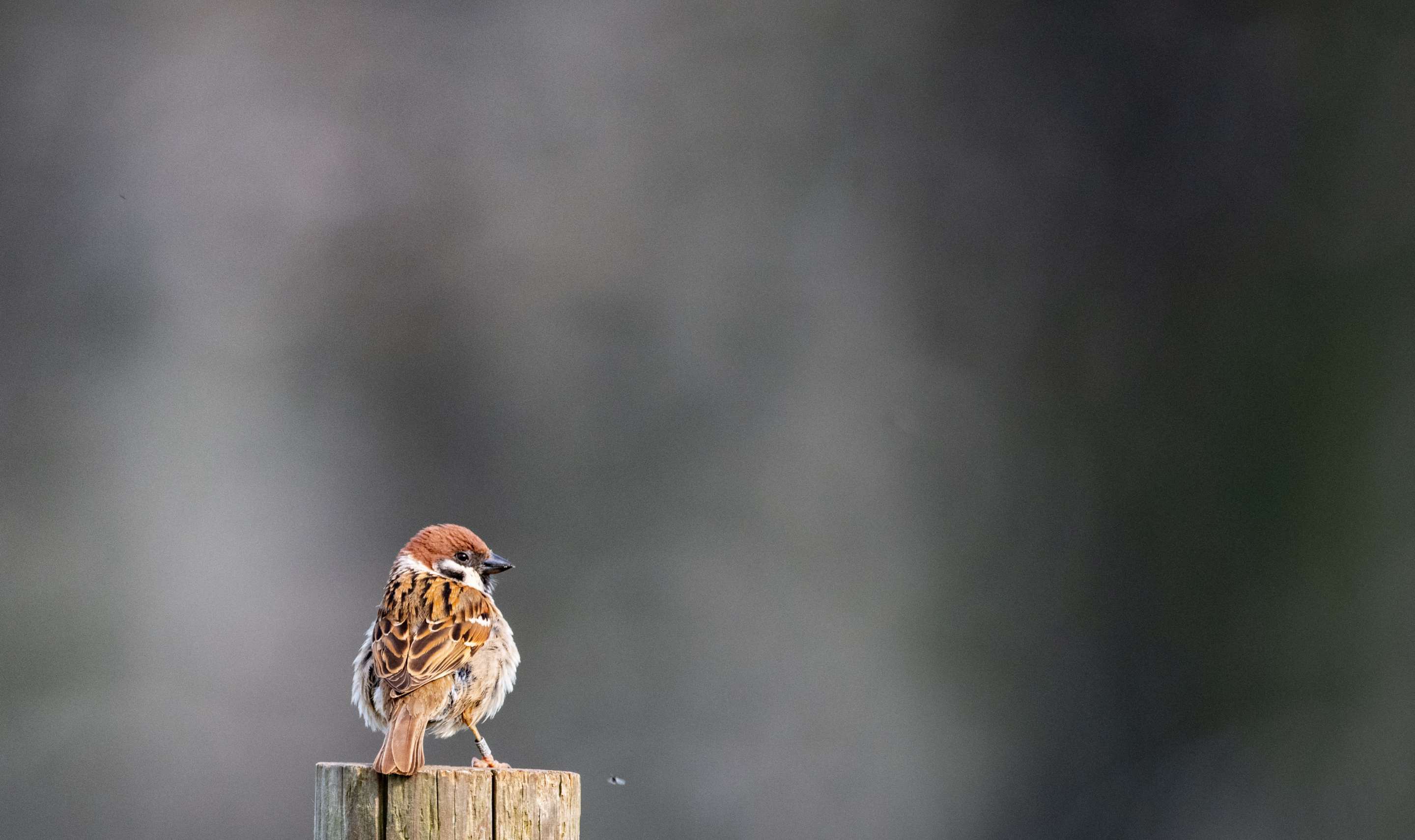
3.25 Tips and tricks Nature can be found everywhere
For those living in urban areas, nature can feel harder to reach. But that isn't the case. You don’t need to sit in vast landscapes of open countryside or see rare wildlife in order to enjoy, and benefit from, the great outdoors.
It’s easy to forget sometimes that a whole world really does exist outside your window. But take a look and you will start to see greenery and wildlife in even the most dense urban areas. And appreciating what’s around you will be rewarding too – for example, just watching birds in a garden can improve people’s feelings of wellbeing, relaxation, and connection to nature.
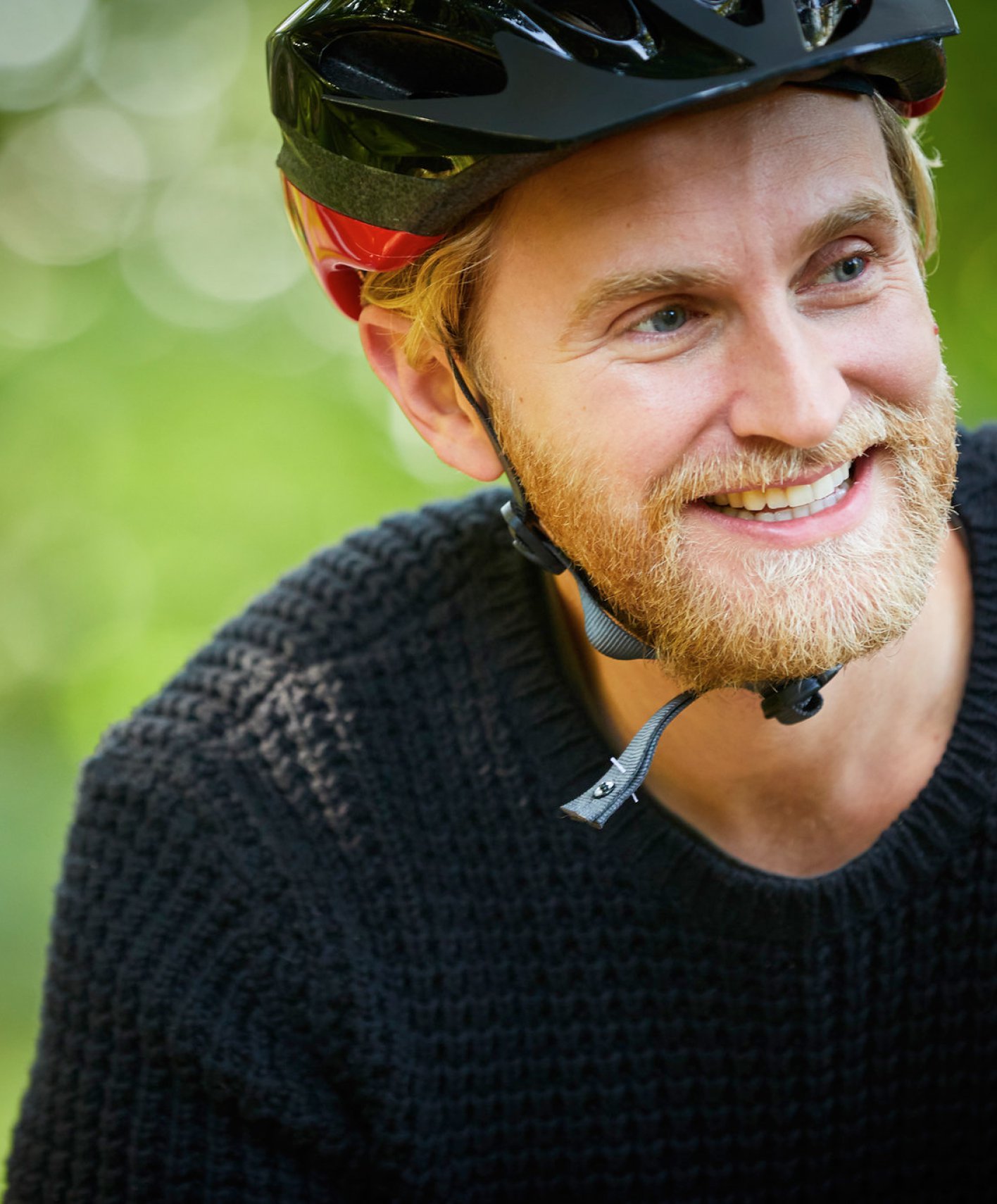

3.27 Tips and tricks Assess your methods of transport
Could you cycle or walk to your local shop instead of hopping in the car? Or perhaps it’s possible to get off the bus one stop earlier and stroll home. With the rush of day-to-day routines, it’s easy to just rely on transport to get us around. Taking a moment to reflect on your modes of transport can offer up opportunities to get outside and stay active more.
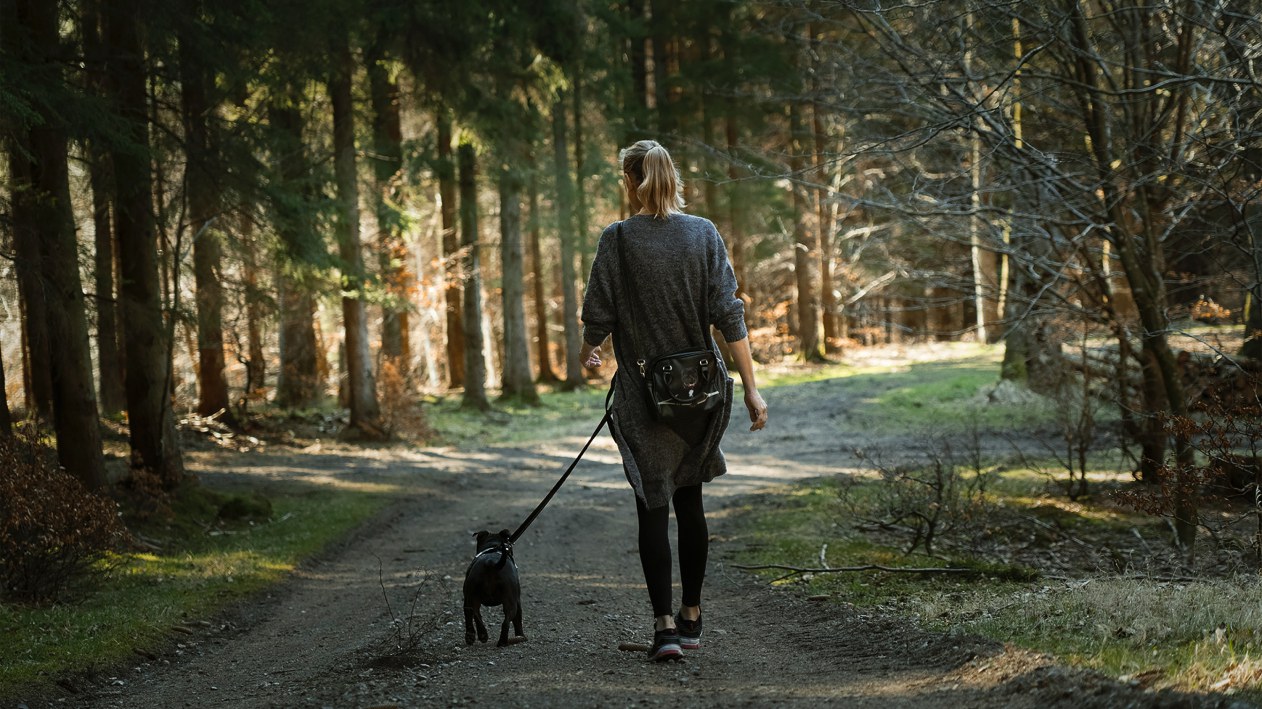
3.28 Tips and tricks Schedule breaks from technology
One of the best things about time spent outside is that it takes us away from the screens which can consume so much of our time. Scheduling time in your day to unplug from screens and devices is calming and helps us reconnect with the natural world.
Whether it’s spending your lunchtime in the garden or local park, or walking your ‘commute’ by doing a lap around the block before you work from home, it’s important to consider how to include time away from your devices in your daily routine.
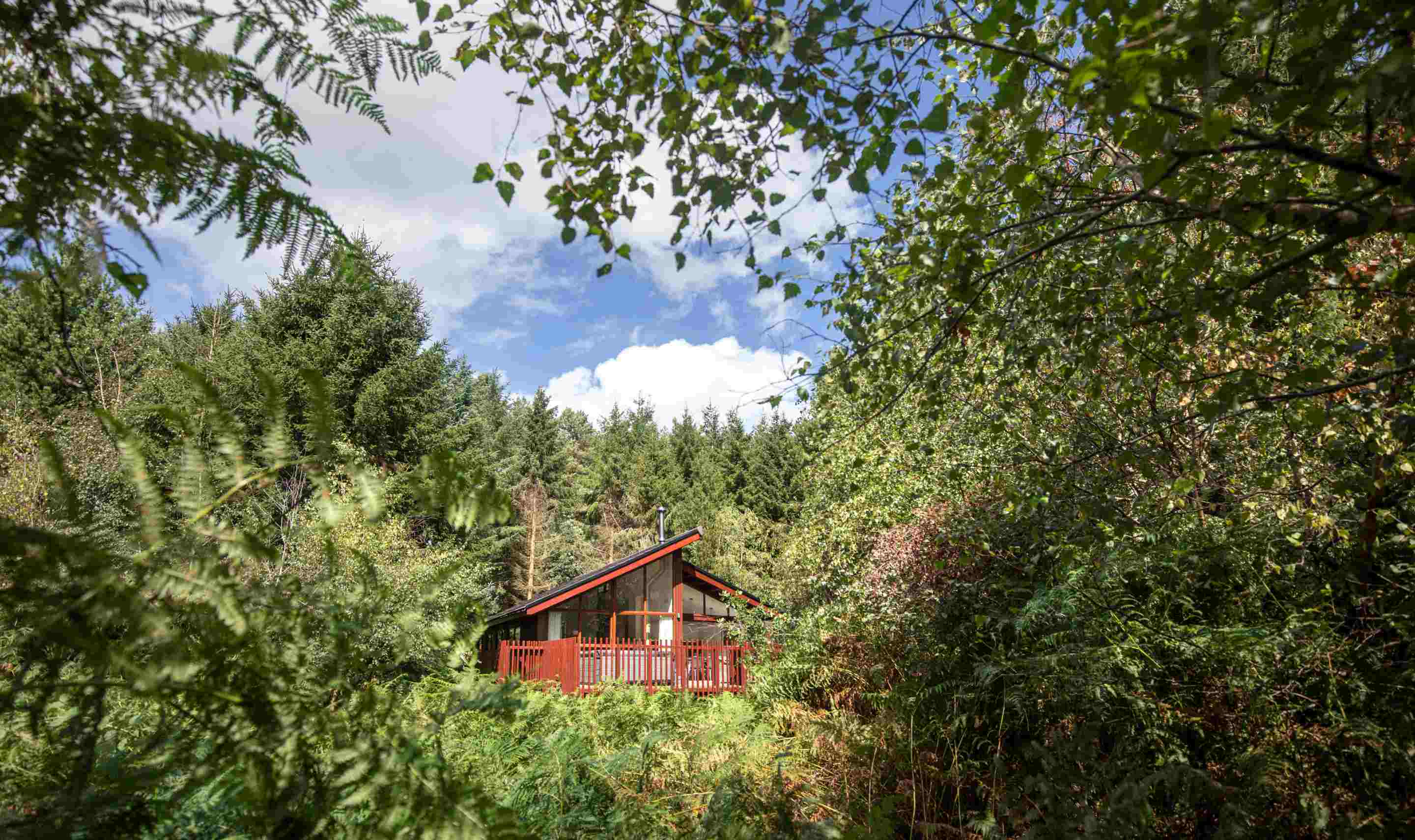
3.29 Tips and tricks Plan your holidays around nature
As well as introducing nature more in your daily routine, you may also want to think about the times you get away on holiday as a family. When you have free time away from work, it feels great to be able to spend it together outside. Travelling to areas of natural beauty in the UK will be great for your wellbeing. You can explore the great outdoors together and make fantastic family memories, all the while benefiting from being more active and embracing nature’s benefits.
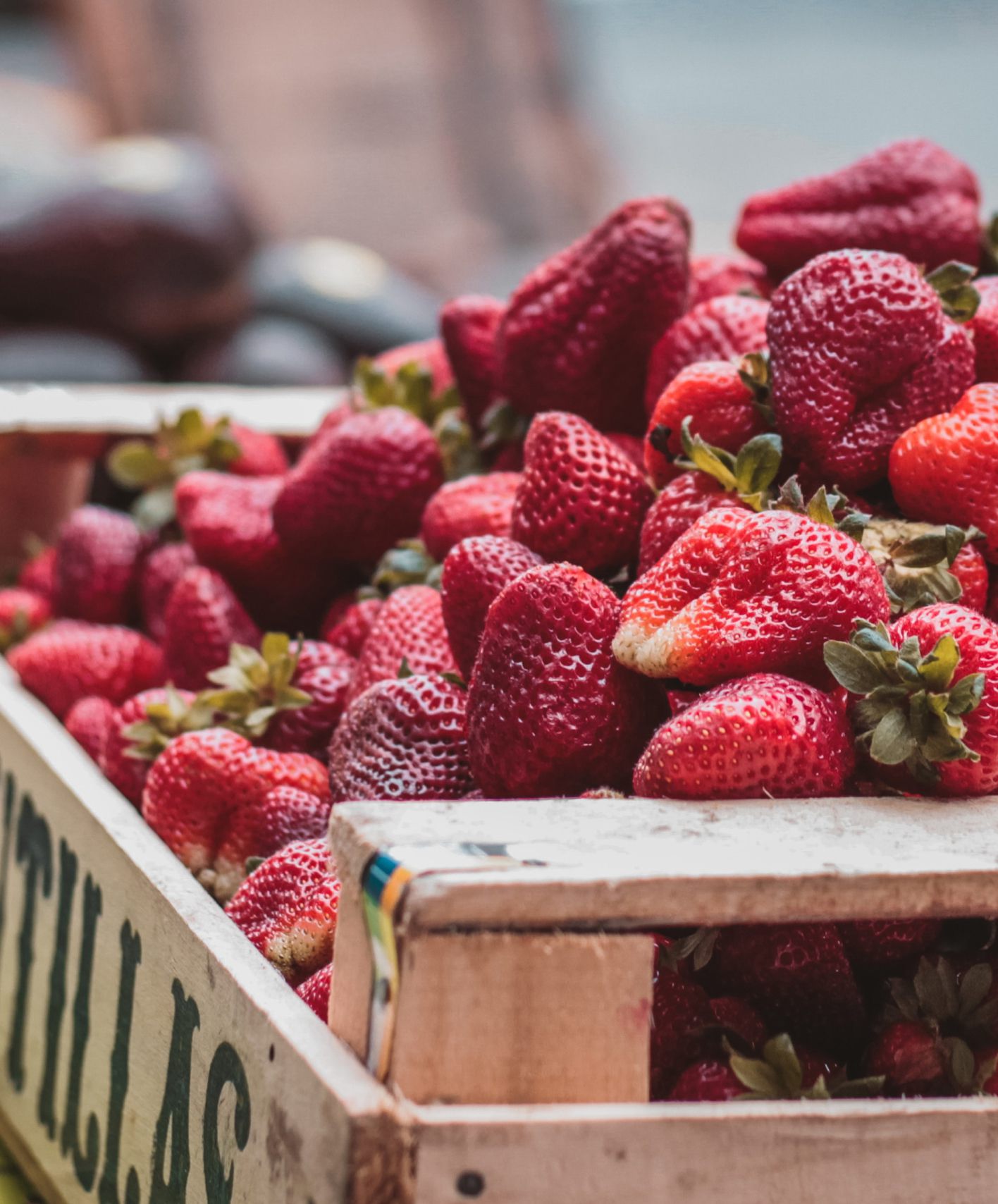

3.31 Tips and tricks Visit a local farmer’s market or pick your own fruit
If you don’t fancy growing your own (or perhaps your first try wasn’t a success), you can check out produce from local suppliers. Lots of towns and villages run farmer’s markets so be sure to look at what’s available in your area. This is a great way to buy seasonal produce directly from farmers and get outside for an afternoon. Some suppliers will also have ‘pick your own’ opportunities when seasonal fruit and vegetables are ready, which can be a great activity for families.
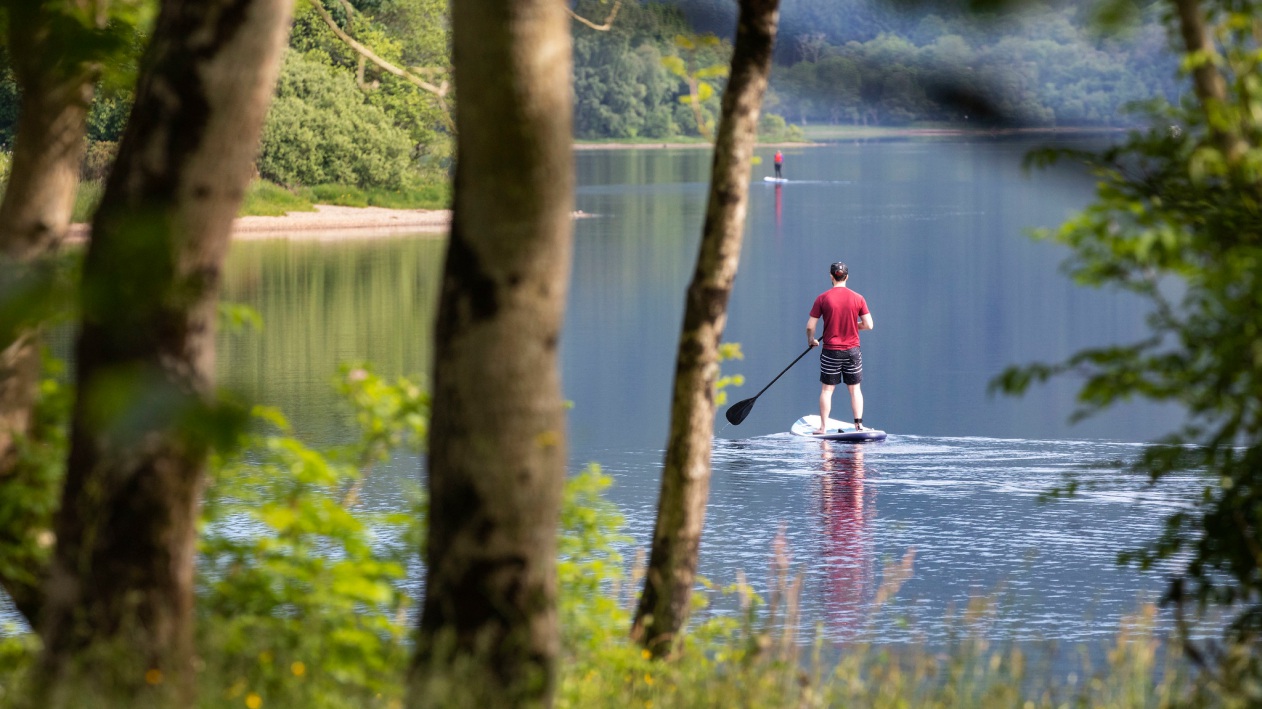
3.32 Tips and tricks Remember it’s all about finding outdoor activities that appeal to you
In order to form new healthy habits, you have to enjoy them. The most important thing is that you’re enjoying spending time outdoors. That’ll be what encourages you to do it more often. From rock climbing to bird watching, there are plenty of outdoor activities that will engage your interests while also getting you closer to nature. Here are just some ideas:
Hiking
Mountain biking or cycling
Canoeing or kayaking
Horse riding
Bird watching
Wildlife spotting
Wild swimming
Gardening
Fishing
Surfing or windsurfing
Climbing
Running
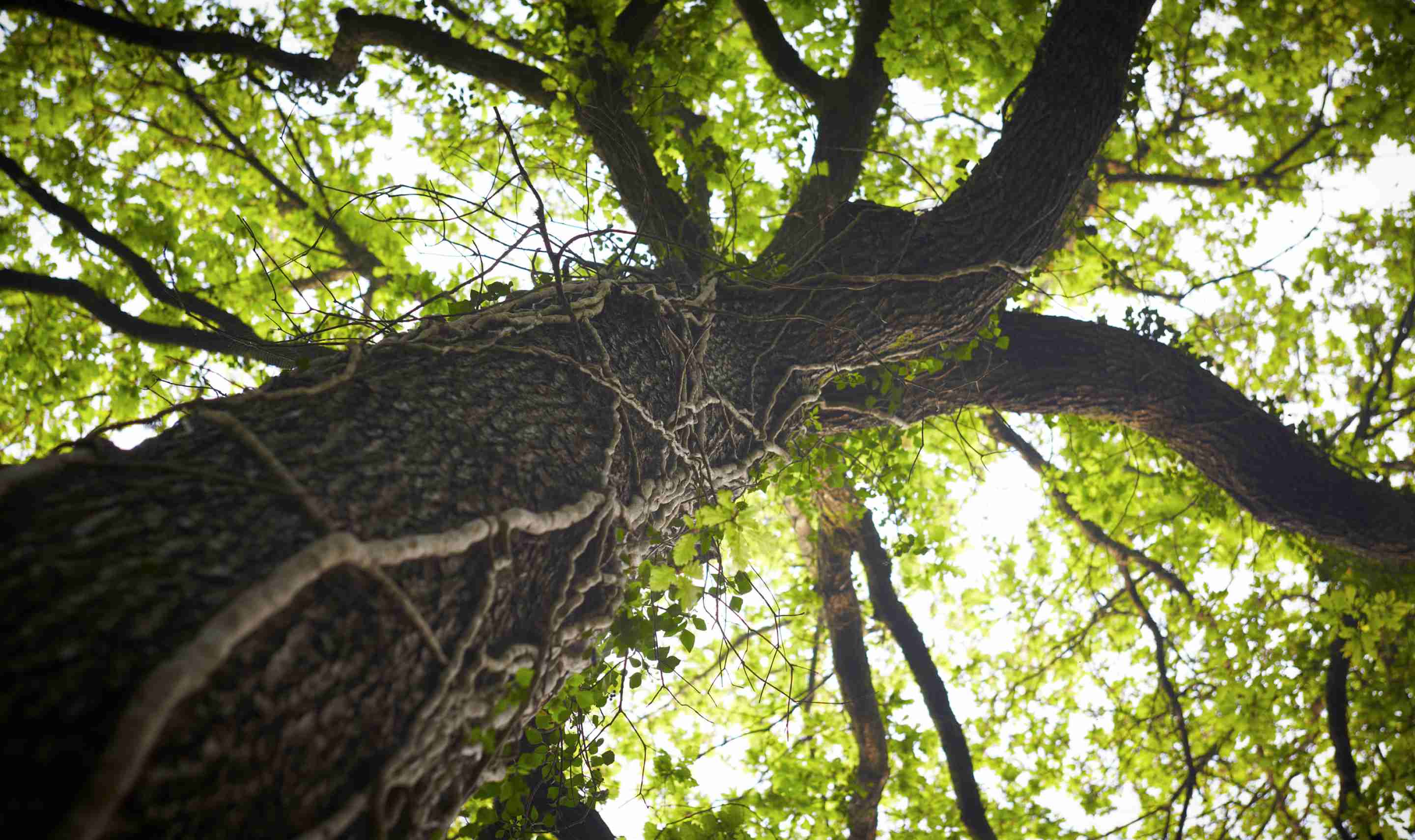
3.33 Tips and tricks Visit a nature sanctuary or national park
If you’re looking for ways to deepen your relationship with nature, then spending more time with animals is a fantastic place to start and it typically involves being outside more. Whether it’s volunteering at an animal shelter or planning a trip to an animal sanctuary, most people love a chance to connect more with animals.

